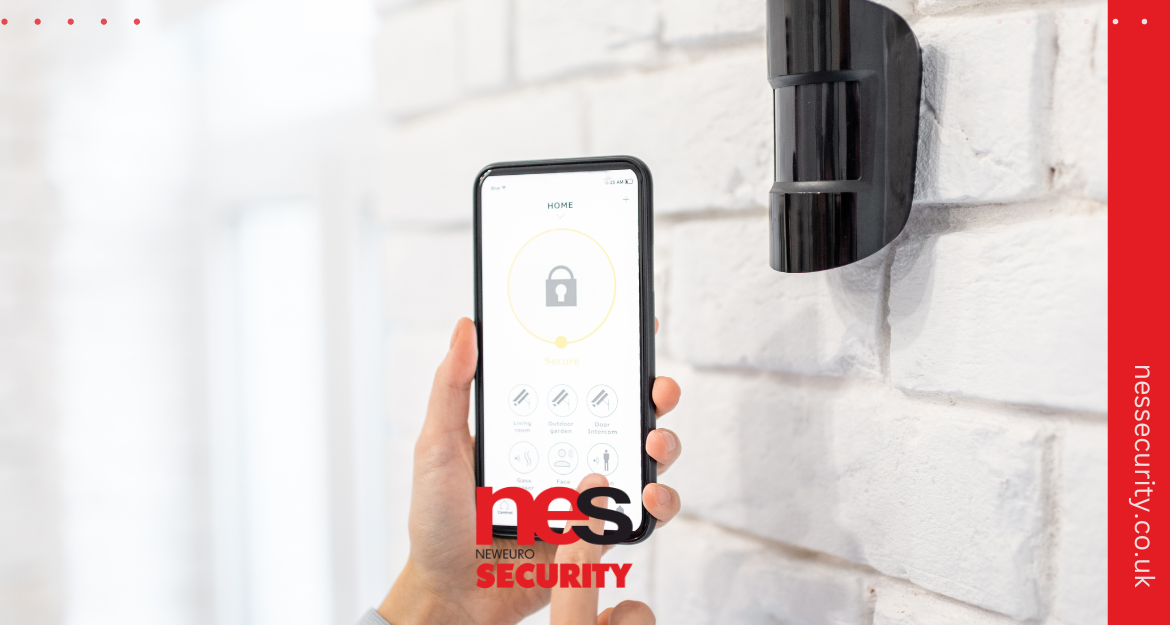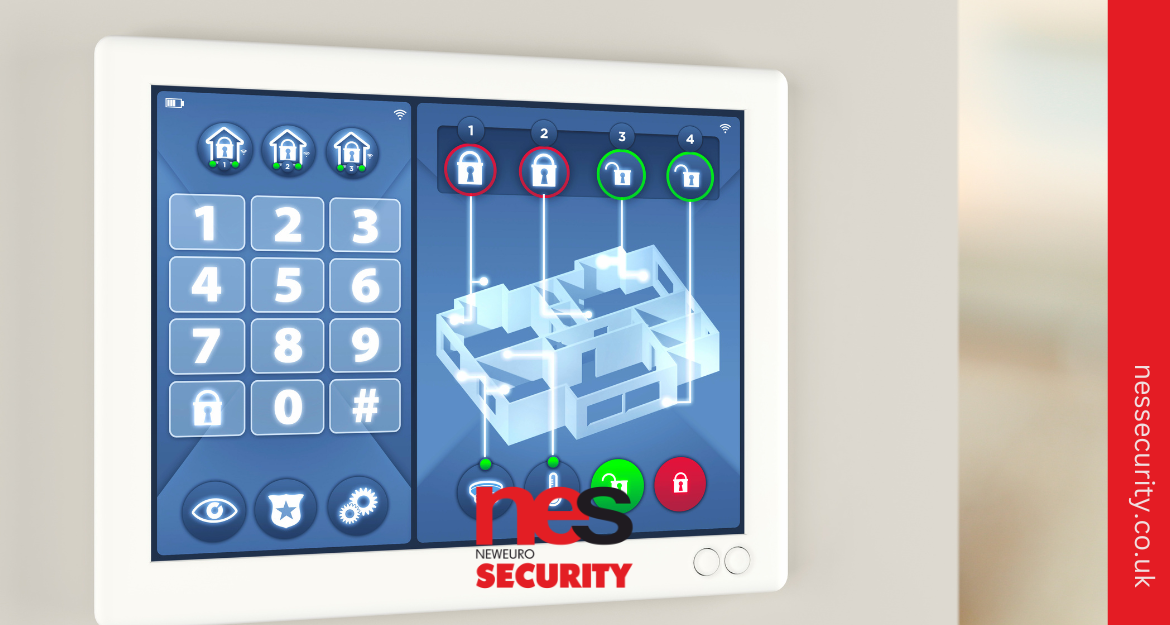In today’s rapidly evolving technological landscape, security is a paramount concern for homeowners and businesses alike. Protecting our properties, assets, and loved ones has become increasingly important. Traditional wired alarm systems have been a reliable security solution for many years, but with advancements in technology, wireless alarm systems have emerged as a popular and versatile alternative. Offering convenience, flexibility, and improved performance, wireless alarm systems have revolutionised the way we safeguard our homes and businesses. In this comprehensive guide, we will delve into the world of wireless alarm systems, exploring their installation process, benefits, and limitations, so you can make an informed decision about the best security solution for your needs.
Understanding Wireless Alarm Systems:
Wireless alarm systems, as the name suggests, rely on wireless communication to connect various security devices throughout a property. Unlike traditional wired systems, which use physical connections to transmit signals, wireless alarm systems use radio frequency (RF) or Wi-Fi technology to transmit data. These systems include a range of security devices, such as motion sensors, door/window contacts, surveillance cameras, and control panels, all interconnected through a central hub or control unit.
Installation Process of Wireless Alarm Systems
The installation process of wireless alarm systems is relatively straightforward, making them an appealing option for both homeowners and businesses. It typically involves the following steps:
- Assessing Security Needs: Before installing a wireless alarm system, it’s essential to evaluate your security requirements. Determine the areas that need surveillance, entry points that need protection, and any other specific security concerns you may have.
- Planning the Installation: Once you’ve identified your security needs, plan the placement of security devices strategically. Consider factors like coverage area, signal strength, and potential obstacles that may interfere with wireless communication.
- Device Placement and Mounting: Install the various security devices, such as motion sensors, door/window contacts, and surveillance cameras, in their designated locations. Mount them securely to ensure optimal performance.
- Configuring the System: After installing the devices, configure the wireless alarm system by connecting them to the central control unit. Ensure that each device communicates effectively with the control panel.

Advantages of Wireless Alarm Systems
Wireless alarm systems offer numerous advantages over their wired counterparts, making them an increasingly popular choice among homeowners and businesses. Some of the key benefits include:
- Easy Installation and Setup: Wireless systems eliminate the need for extensive wiring, making the installation process quicker and less invasive. This also reduces installation costs.
- Flexible Placement of Devices: Wireless devices can be placed virtually anywhere within the coverage area, offering more flexibility in customising your security setup.
- Scalability and Expandability: Wireless alarm systems can easily accommodate additional devices, making them scalable and adaptable to future security needs.
- Minimal Disruption to Property: Since there’s no need for extensive wiring, installing wireless alarm systems results in minimal damage to walls and structures.
- Remote Access and Control: Many wireless alarm systems offer remote access through mobile apps or web interfaces, allowing users to monitor their property from anywhere.
- Improved Aesthetics: Wireless devices are often smaller and more discreet than their wired counterparts, contributing to a cleaner and more aesthetically pleasing appearance.
Limitations of Wireless Alarm Systems:
While wireless alarm systems offer several advantages, they also come with some limitations that should be considered:
- Signal Interference and Range: Wireless alarm systems can be susceptible to signal interference, which may affect communication between devices. The range of wireless signals may also be limited, especially in larger properties or areas with thick walls. Only in the case of very large properties, installing a signal booster such as the “Ajax Rex” help enhance the signal coverage.
- Battery Life and Maintenance: Wireless devices rely on batteries for power, and their longevity can vary. Regular battery checks and replacements are necessary to ensure the system’s effectiveness.
- Cybersecurity Risks: Like any wireless technology, wireless alarm systems may be vulnerable to cyber threats if not adequately secured. Ensuring strong encryption and password protection is essential to protecting against potential hacking. It’s important to note that our wireless alarm systems are equipped with highly robust encryption measures, providing an added layer of security to safeguard against unauthorised access.
- Initial Cost: While the long-term benefits of wireless alarm systems are undeniable, their initial cost may be higher than traditional wired systems. However, ease of installation and scalability may offset this initial investment.

Choosing the Right Wireless Alarm System:
Selecting the right wireless alarm system is crucial for the security and protection of your property. Consider the following factors when choosing the best system for your needs:
- Identifying Security Needs: Assess your property and determine the level of security required based on factors like property size, location, and potential security risks.
- Considering Property Size and Layout: The size and layout of your property will influence the range and coverage area needed for the wireless alarm system.
- Evaluating Connectivity Options: Different wireless alarm systems use various communication protocols. Assess which connectivity option best suits your property’s needs and offers the desired level of reliability.
- Exploring Additional Features and Integration: Look for wireless alarm systems that offer additional features, such as smart home integration, mobile app control, and surveillance camera compatibility, to enhance your security setup.
Maintenance and Troubleshooting of Wireless Alarm Systems:
Regular maintenance and troubleshooting are essential for ensuring the optimal performance of your wireless alarm system. Here are some maintenance tips:
- Regular System Checks and Battery Replacements: Schedule periodic checks to ensure all devices are functioning correctly and replace batteries as needed to prevent device failures.
- Addressing Connectivity Issues: If you encounter connectivity issues, assess potential sources of interference and try relocating devices or using signal boosters.
- Updating Firmware and Software: Keep your wireless alarm system’s firmware and software up-to-date to benefit from the latest features and security enhancements.
Integrating Wireless Alarm Systems with Smart Home Technology:
Wireless alarm systems can be seamlessly integrated with smart home technology, creating a cohesive and intelligent security ecosystem. By connecting your alarm system with other smart devices, such as smart door locks, lighting, and thermostats, you can enhance automation and convenience. This integration allows for more advanced security scenarios, such as triggering lights or adjusting thermostats based on alarm activation.
Final Thought
Wireless alarm systems have revolutionised the way we approach security for our homes and businesses. With easy installation, flexible placement of devices, and remote access, they offer unparalleled convenience and efficiency. However, it’s essential to consider the limitations, such as signal interference and battery maintenance, while making your decision. By selecting the right wireless alarm system that meets your specific security needs and partnering with a trusted security provider like Nes Security, you can enjoy peace of mind knowing your property is well-protected.
Partnering with Nes Security for Wireless Alarm System Solutions
At Nes Security, we understand the importance of protecting what matters most to you. Our expert team is dedicated to helping you choose and install the ideal wireless alarm system for your unique security needs. With our top-quality products and reliable installation services, we ensure that your wireless alarm system operates at its best, giving you the confidence and peace of mind you deserve.
As part of our commitment to providing the best wireless alarm system solutions, we offer a user-friendly mobile app that complements your security setup. This innovative app allows you to conveniently monitor the status of your alarm system at any time, right from your smartphone or tablet.
With the mobile app, you’ll receive real-time notifications if any part of the alarm system requires attention. Whether it’s a low battery warning or any other issue, such as tampering attempts, the app will promptly inform you, enabling you to take immediate action. We believe that staying informed is crucial for maintaining a robust security system, and our mobile app empowers you to do just that.
Let Nes Security be your trusted partner in safeguarding your home or business with cutting-edge wireless alarm system solutions. Experience the ease of monitoring and managing your security setup through our intuitive mobile app, enhancing the overall security and protection of what matters most to you. Your safety is our priority, and we are here to support you every step of the way.


